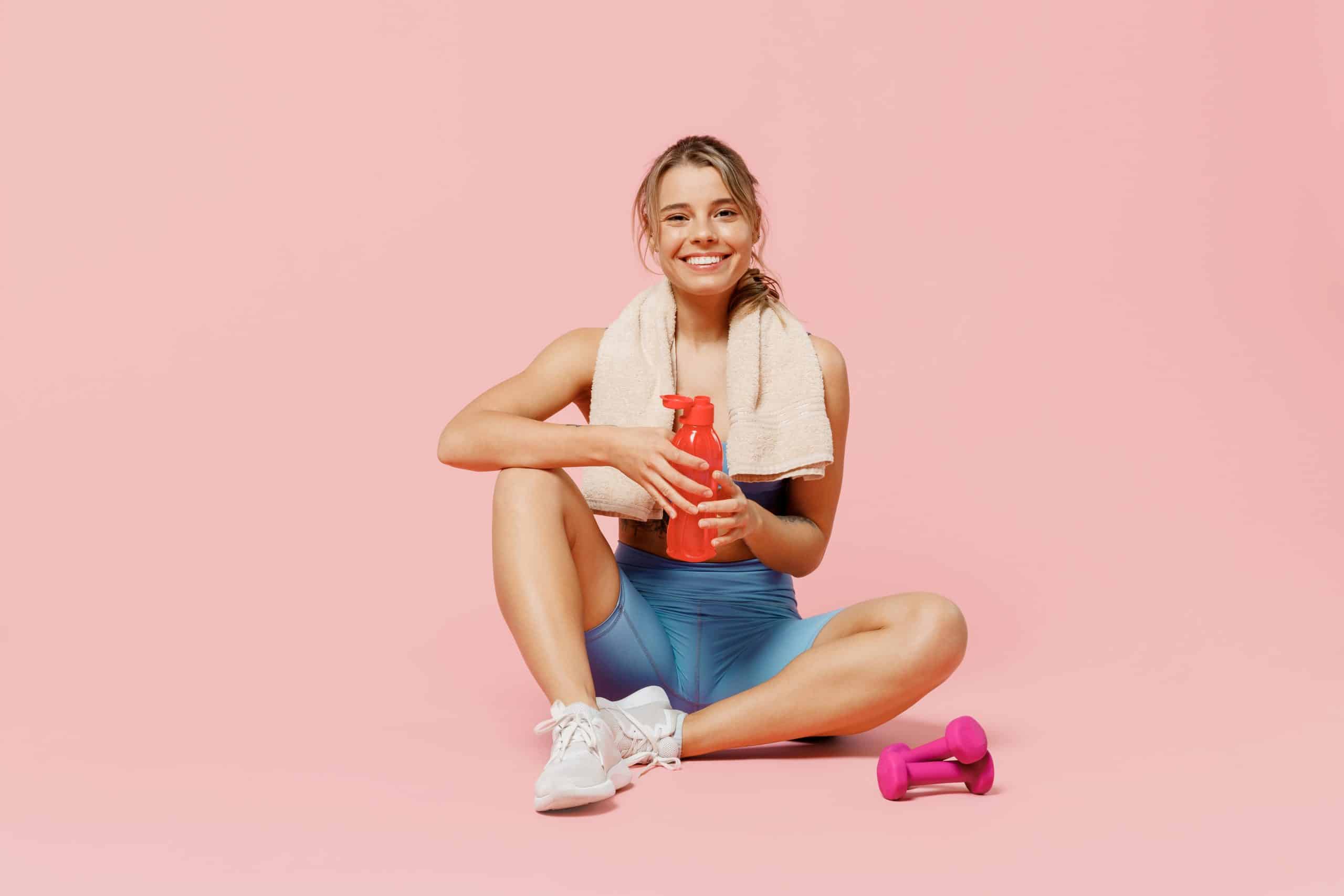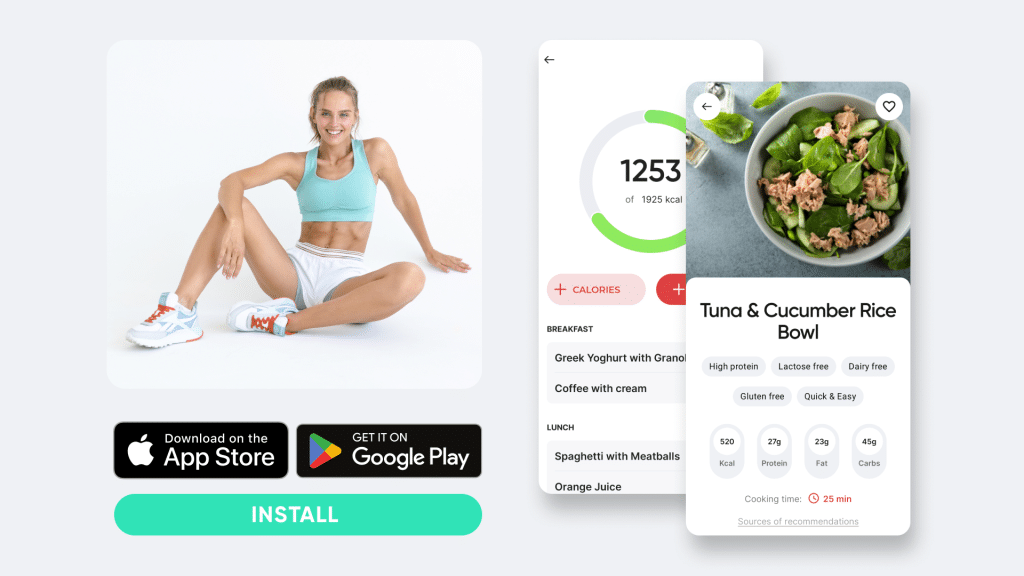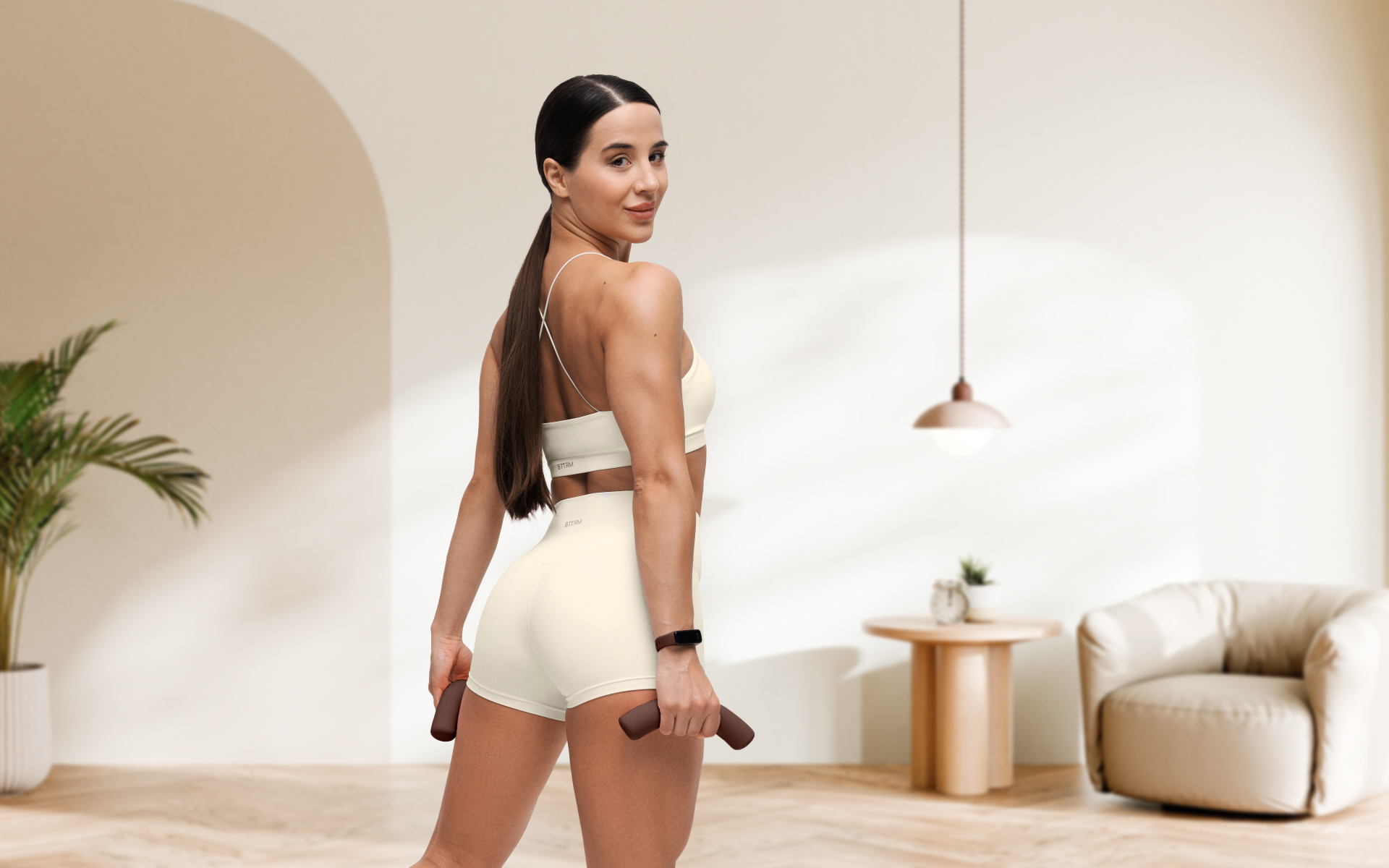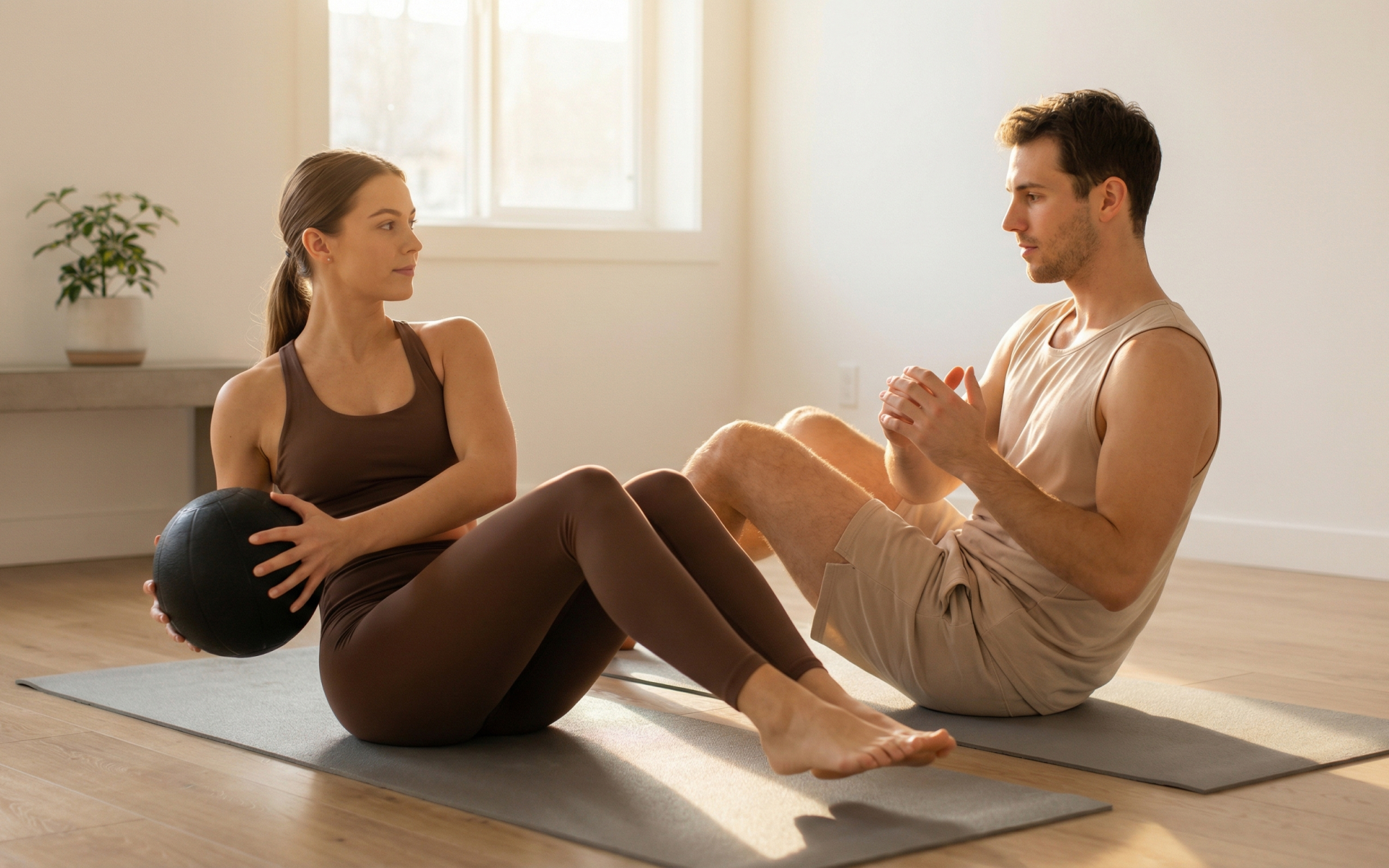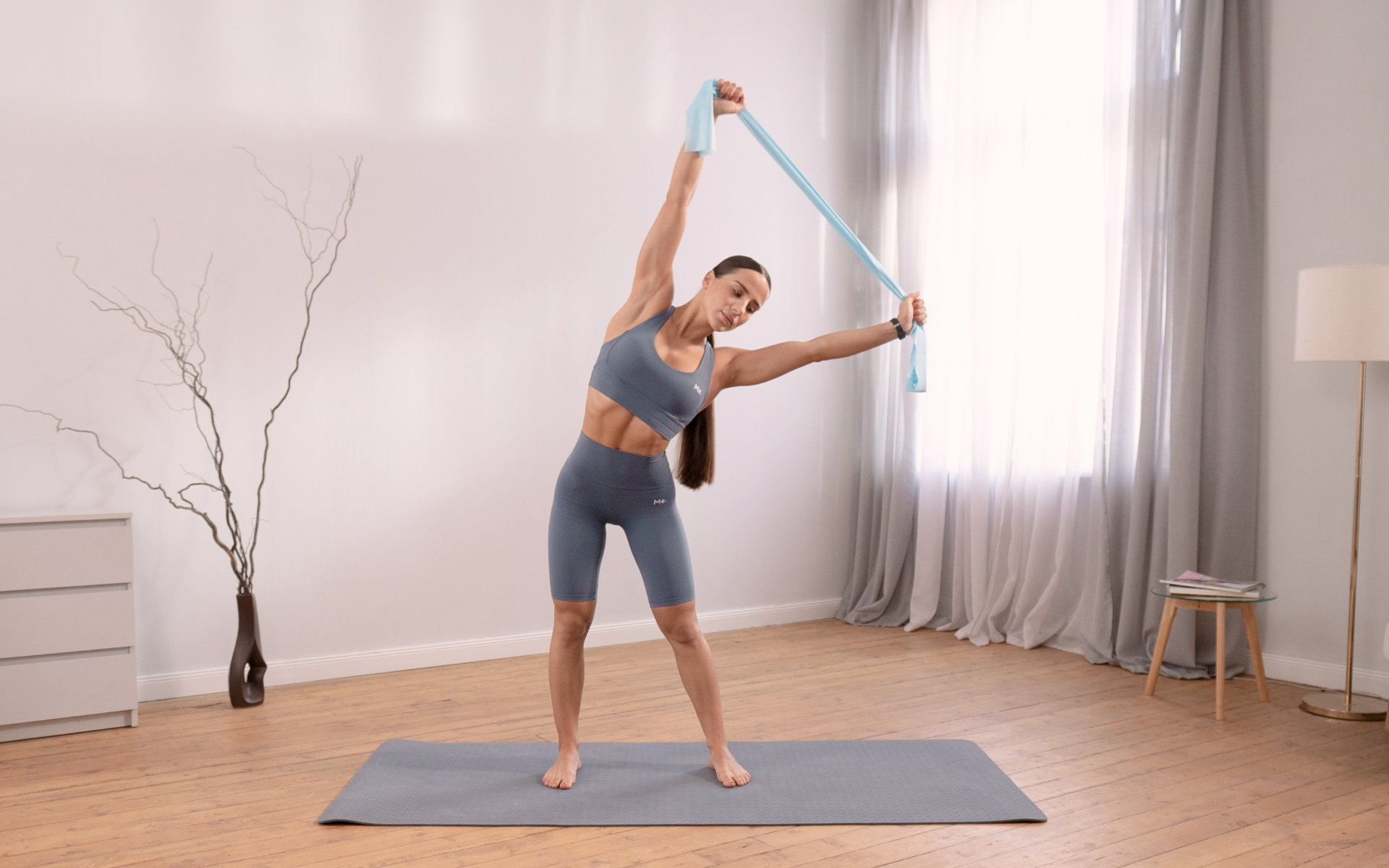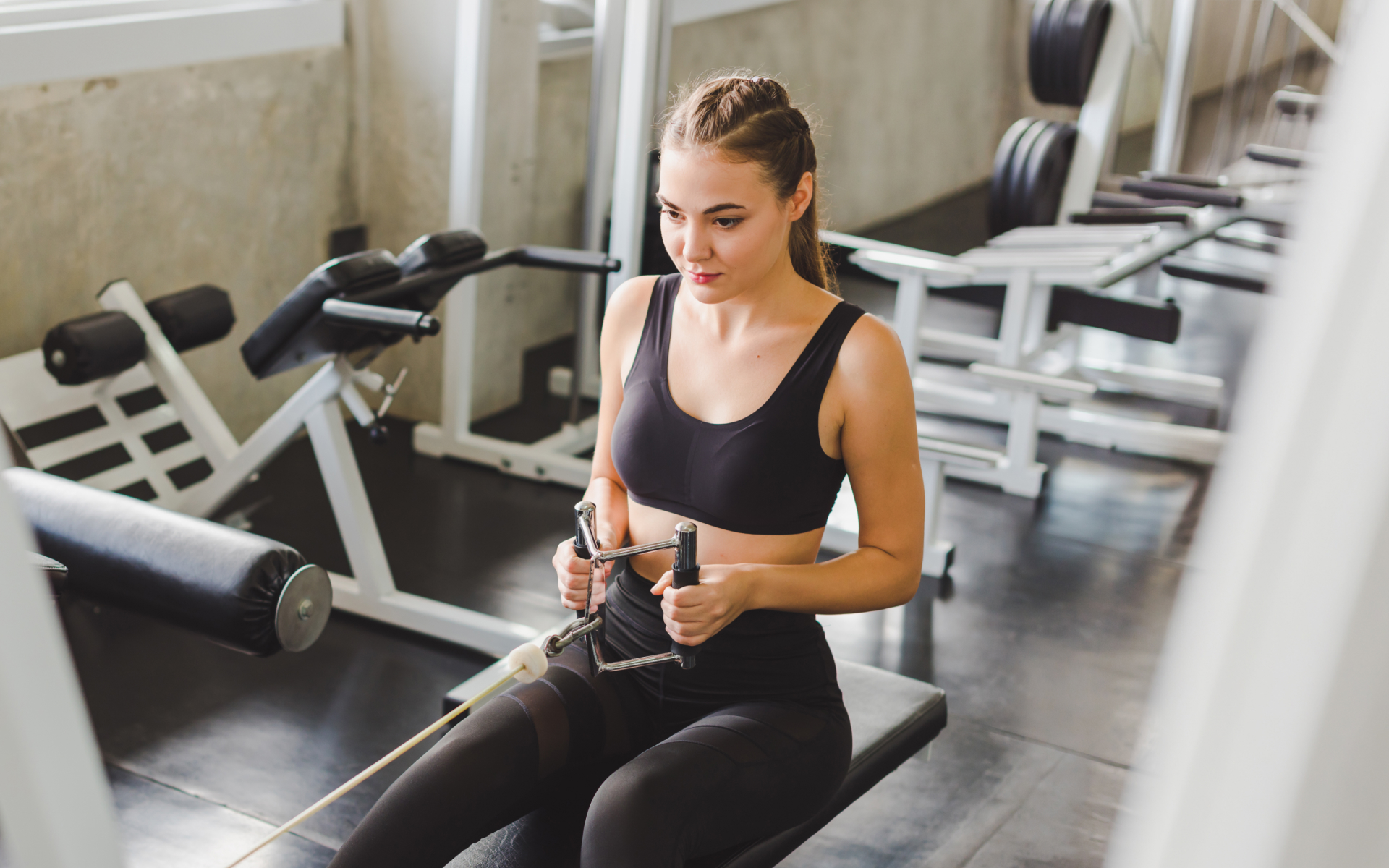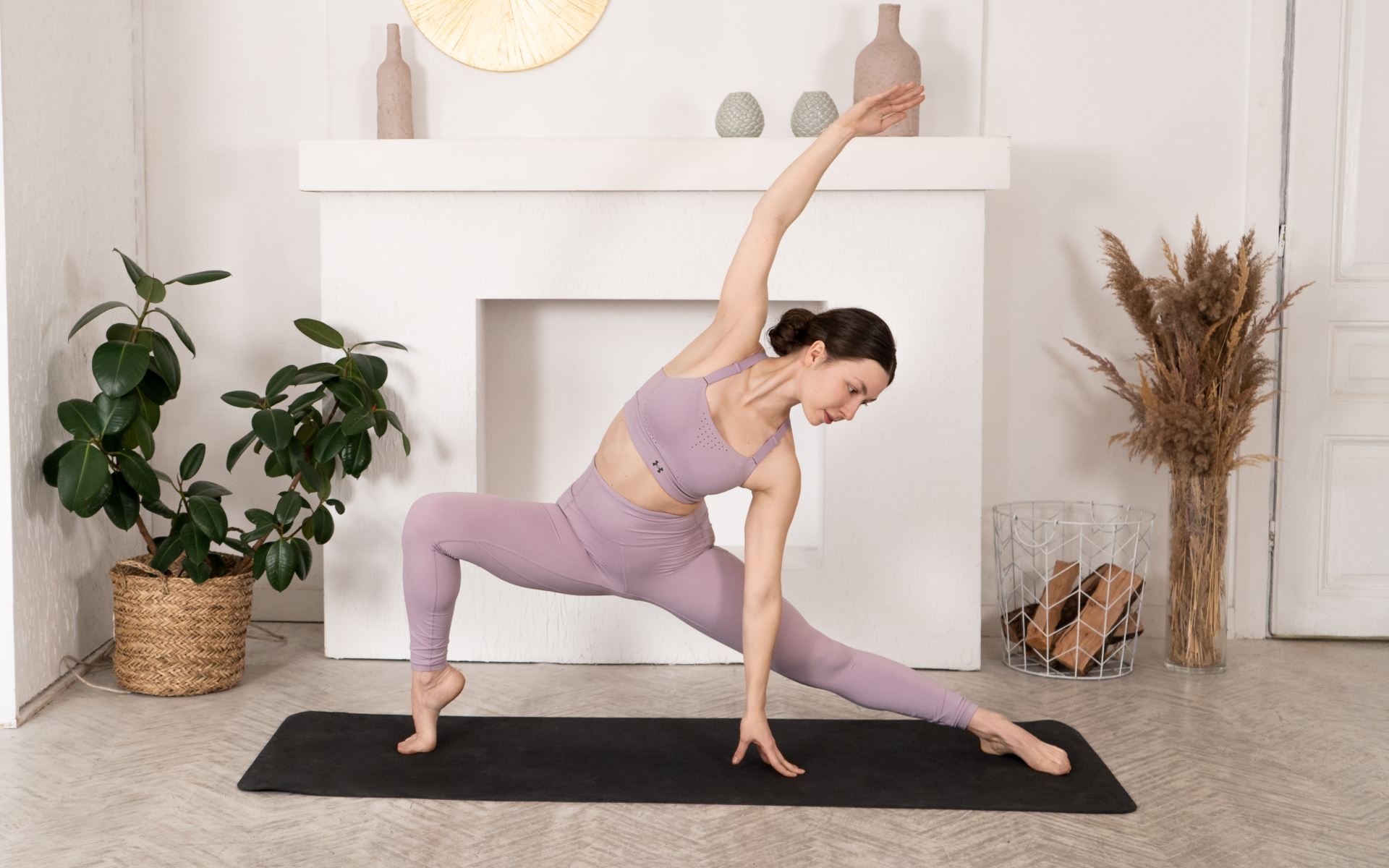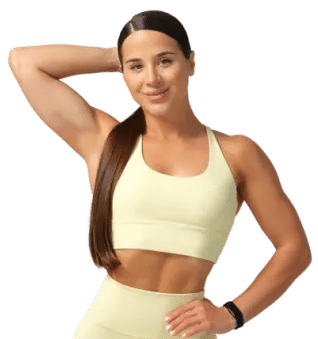We are living in a world where convenience reigns supreme. Everyone is on the lookout to make their lives easier. Like many other facilities, home workouts are an excellent replacement for furious training sessions at the gym. You only need an internet connection and a will to push yourself to the limits!
With the proper techniques and plans, you can do a full-body workout at home without equipment. But you may think you cannot gain the maximum benefits without hitting the gym. Well, that’s a myth. You can reap effective results from the comfort of your home. Just work on your discipline, perseverance, and your body weight.
Let’s be frank – Not all of us have time to go to the gym and find classes that fit our routine. On the contrary, you can save time commuting by working out, without distractions in your personal space. You may now wonder how to work with your body weight, which may require special equipment.
We would like to let you know that you can!
A full-body workout at home without equipment is possible if you are motivated to do it. This article explores how to turn your living room into a personal fitness haven. Have a look!
What Is a Full-body Workout at Home without Equipment?
For years, people believed they needed a gym to practice the right movements to lose weight or have a toned body. It is now proven that you don’t. A full-body workout at home without equipment is the best way to work on your physique, without relying on a gym.
This workout covers a series of exercises you can do with your body weight. Instead of working out with gym equipment, you will use your body weight to exercise your muscles and build strength. It is easier, simple, and can be performed anywhere.
Research proves that an effective way to drop pounds and melt fat is by picking exercises that work many muscles and make your heart race (11). These exercises can help you burn fat and shape your whole body. The best part is you can do them without any exercise.
Lean and toned up body isn’t just a far-fetched fantasy. Check out the BetterMe app and watch it propel your weight loss journey into high gear!
Can You Do a Full Body Workout Without Equipment?
Yes, absolutely!
Know that there are many levels of doing workouts at home. For instance, if you are just starting out, you can do a full-body workout at home without equipment for beginners.
It would be best to use your body weight effectively to make the most of it. Besides your body, you can use other non-gym equipment like a towel, chairs, or a bar to amp up your workout routines. The point is to make the full-body workout at home hassle-free.
What Is the Best Full Body Workout at Home for Beginners?
A good full-body workout at home without equipment no equipment is one where you feel your muscles actively working and begin to see results within weeks. For starters, here are some of the best full-body workouts at home without equipment for beginners.
But before you begin your workouts you must know that you should warm up properly to prevent injury or help with Delayed Onset Muscle Soreness. Many beginners often make the mistake of not warming up their muscles enough and may fall victim to muscle soreness and injuries, ultimately skipping their exercises altogether.
This means that you should warm your body for at least 5 minutes by doing light dynamic stretches and movements to gradually increase your heart rate. After warming up properly, begin this full-body workout at home without equipment.
Squats
Squats are the most common yet the most effective full-body workout. They can be performed anywhere and are a great starting exercise for beginners. To perform squats (5):
- Look for a comfortable and quiet corner where you can work out peacefully.
- Stand with your feet shoulder-width apart.
- You can cross your arms in front of you, raise them forward, or keep them hanging at your sides.
- Begin by slowly lowering yourself until your knees are parallel to the floor. Ideally, you must bend them to 90 degrees. If this is hard for you, reach a little above this angle.
- Stay there for a second and then return to the starting position. This counts as a single rep. Do squats for at least a set of 5-6 reps.
While this is a basic squat, you can perform different variations of squats like the Bulgarian split squats, sumo squats, etc. To make your workout harder, you can perform a squat jump. You can target different leg muscles by positioning your legs in other places.
Lunges
The second most common bodyweight exercise after squats is lunges. Lunges are similar to squats, but you step ahead instead of squatting. To perform lunges:
- Stand on the floor with your feet shoulder-width apart.
- Step ahead and begin lowering your body by exerting pressure on your thighs. You can hang your hands by your sides or grab your body.
- Bend until your right knee is parallel to the floor and your left leg is perched. Here’s a pro tip. Your knee or the leg in front should be directly above your ankle.. You should be able to see your toes at the top from your lunge.
- Return to the starting position and do the same with the other side. This counts as a single rep. Do lunges of at least 3-4 reps per leg.
You can also perform variations like lateral lunges or jumping lunges to make it hard.
Push-ups
When talking about arm calisthenics, pushups are one of the best. They target your shoulders and arms and help build a strong core and chest muscles. They are a win-win for equipment-free workouts. To perform the basic pushups (5):
- Look for a comfortable spot where you can easily perform pushups.
- Get on the floor with your legs and knees touching the ground.
- Place your hands ahead on the floor. Ensure your back is straight.
- Begin by exerting pressure, flaring your arms, and lowering your face until you reach at least an inch from the ground.
- Return to the top.
- That’s one rep. Perform these pushups for at least two sets of 4 reps each.
If getting on the floor is hard, you can perform wall pushups. The routine is the same, with you pressing on your arms and reaching at least an inch from the wall.
If this pushup is too easy for you, you can do regular pushups with your toes placed on the ground and your body parallel to the floor. To increase difficulty, you can perform single-arm pushups, shoulder taps, or pushup jumps.
Read more: Pilates Full Body Workout for Beginners (No Equipment Needed)
Can I Do a 20-Minute Workout Every Day?
When it comes to working out, many of us are often confused about how much exercise we should do daily. While many bodybuilders may spend hours in the gym, that doesn’t mean you have to. The efficacy of an exercise not only depends on the duration of the activity but countless factors like the type of exercise, frequency, fitness level, and intensity of the exercise.
The American Heart Association recommends getting at least 150 minutes of physical activity a week, translating into roughly 20 minutes of moderate-intensity daily exercise (3).
Let’s break this workout routine and see what comes under moderate-intensity exercises.
Regarding moderate-intensity workouts, you can do brisk walking, regular biking, swimming, or yard work. All the house chores you perform and basic exercises come under moderate-intensity workouts. With this in mind, it would be best if you aimed to perform them at least 5 days a week with 2 days of rest.
Also, the American College of Sports Medicine recommends getting at least 30 minutes of moderate-intensity workout 5 days a week or 20-minute high-intensity workout three days a week (10):
When planning high-intensity workouts, consider running or jogging, swimming with effort, playing soccer or basketball, or walking briskly uphill. When you feel your heart pumping harder, that means you are working at a high intensity.. Aim to do this at least three days a week (7).
Workout routines and their impact can differ according to individual differences. It would help to look for specific plans, such as a 20-minute full-body workout at home without equipment, to ensure you can make the most of it. Likewise, females can look for full-body workouts at home without equipment female versions to ensure they are following the right track, although all workouts are suitable for any gender.
What Are the Benefits of Full-body Workouts at Home Without Equipment?
Some benefits of a full-body workout at home without equipment are:
Helps to Combat Stress
The biggest benefit from working out at least 20 minutes daily could be reduced stress. When we don’t get adequate sleep over a period of time or are under high pressure, our body may produce cortisol (stress hormone), which can spike our blood sugar levels and hinder our productivity and sleep cycle (6).
When you do a 20-minute workout, your body produces dopamine or serotonin, the feel-good hormones that can fight stress and bring a feeling of relaxation.
Improves our Brain Health
In addition to producing serotonin and dopamine, working out can also release other components such as brain-derived neurotrophic factor, or BDNF, that can further help prevent feelings of depression due to stress. When you exercise for at least 20 minutes daily, your brain produces a neurotransmitter GABA or gamma-aminobutyric acid which may further support brain health (9).
Looking for a way to break the vicious cycle of weight loss and tone up all the jiggly parts? Watch the extra pounds fly off and your muscles firm up with the BetterMe app!
What Exercises Build Muscles Without Equipment?
You don’t specifically need equipment to build muscles. You can build a great body just by using your body weight.
Here are some of the best workouts you can add to your regime:
For Arms
If you want arms of steel, you don’t need to hit the gym. You can get similar results by using your body and makeshift weights at home.
Tricep Dips
If you want to build strong triceps you can put all your confidence in tricep dips. These are excellent at developing strength in your arms and shoulders. To perform tricep dips:
- Find any suitable elevation, like a table or a chair, from which you can perform dips. Ensure they won’t slip while performing dips.
- Sit on the table’s edge with your hands gripping the surface on your sides. Slowly get off the surface while keeping your hands glued to the table firmly.
- Gradually lower your body until your elbows and arms form a 90-degree angle and are parallel to the table. You should feel your arm muscles working.
- Raise your body to the top and do this repeatedly. Perform dips for three sets of 5 reps.
For variation, you can also perform chair dips, where you place two parallel chairs and perform dips by holding both chairs with your hands.
Pull-ups
Pull-ups are great for building strong shoulders and upper back. They can be done with a pull-up bar or any elevated surface. To perform them (1):
- Stand underneath a pull-up bar.
- Jump and grab the bar with your hands firmly.
- Raise your body and extend your feet backward or forward to hang in the air. Begin by raising your body upward until your chin is parallel to the bar. Return to the starting position and repeat the motion.
- This counts as a single rep. Do pull-ups for at least two sets of 3-4 reps.
For variation, you can do chin-ups where your palms are facing you. This can help to enhance your biceps. Or you can go for isometric holds, i.e., maintaining the position for about 30 seconds and returning to the starting position.
For instance, when you reach parallel to the bar in a pull-up, maintain that position for a few seconds before lowering. This exerts more pressure on your arms and helps you get big gains rapidly.
For Legs
You can easily build strong legs with bodyweight exercises as you exert your entire body weight on your legs, like squats and lunges. Here are a few leg workouts:
Glute Bridges
If you want to build stronger hips, consider bridges. These exercises target your glutes and hamstrings and give a firm look to your hips. To perform the glute bridges (5):
- Find a comfortable spot and lie on the floor.
- Be sure that your feet are placed shoulder-width apart.
- Clasp your hands behind your head or rest them on the floor.
- Begin by driving your heels into the ground and raising your hips upward and as much as you can.
- Return to the ground.
That’s one rep. You can do bridges for three sets of 8 reps. Alternatively, you can perform bridges from an elevated surface like a bed or a table.
Step Ups
If you want stronger calves or shin, consider step-ups. To perform this exercise:
- Stand near the stairs.
- Step on the first stair step with your right heel perched on the edge and your left foot in the air. Do this rapidly.
- Perform three sets of 8 reps for each foot.
Similarly, you can perform calf raises by perching your heels mid-air and exerting pressure on your toes. All of these exercises can help to strengthen your legs.
For Core
Core exercises can help to improve your balance and stability (4). The most famous ones without equipment are:
Plank
Plank-like squats are a must-have in the core workout. Even by doing so little you can effectively build your core in days.
- Get on the floor with your elbows, hands, and feet on the ground. Ensure your hands are straight ahead and your toes are perched on the floor.
- Make sure your back is straight, and you are facing the ground.
- Slightly bend your back and maintain this position for as long as possible. If you are a beginner, 30 seconds is enough. You can increase it to a minute or two as your strength increases.
Alternatively, you can perform side planks by placing your body weight on your left or right arm.
Mountain Climbers
Mountain climbers are an effective cardio and core strengthening exercise. To perform these:
- Get on the floor, in a high plank position..
- Place your hands under your shoulders and your feet placed on the floor.
- Begin by raising your right knee towards the chest and bringing it back.
- Do the same with your other knee as if climbing a steep slope.
Bicycle Crunches
Crunches are also notorious among workout sets. You can perform bicycle crunches that constitute a perfect strength + cardio workout. To perform bicycle crunches, follow these steps:
- Get on the floor and place your hands behind your head.
- Ensure your legs are extended on the floor.
- Bring your right elbow towards your left knee and extend your other leg.
- Repeat the same with your other side. Do these for at least two sets of 7-8 reps.
Read more: 8 Beach Exercises To Do for a Full Body Workout
What is the Best Full-Body Workout at Home without Equipment for Seniors?
Who said fitness is for youth only? If you are across 50 you can still get your body moving by doing easy and light workouts without equipment in the comfort of your home. Some movements you can include in your routine are:
- Chair Squats: You can do chair squats by standing before the sturdy chair that won’t slip. Extend your arms straight ahead and bend your knees to lower until you reach the chair and immediately get up. You can start slow and do a few reps initially. Avoid arching back while performing chair squats (8):
- Step-ups: You can also perform step-ups. If you have a chair, you can do supported leg lifts by gripping the chair with one hand, extending your other leg as far as you can, and repeating this a few times on each leg.
- Wall Push-ups: Wall push-ups are great for building arms. Remember to start slow and not hurt yourself in the process. You should do these under the guidance of an online coach or someone’s supervision, especially if you are new to this.
Are 30-minute Workouts Effective?
A 30-minute full-body workout (no equipment) can be quite effective if you work all your muscle groups and follow a proper road map. The crux is getting at least 150 minutes of moderate-intensity weekly workouts.
To increase intensity, you can also perform full-body resistance band workouts.
FAQs
How can I build muscle without weights or equipment?
You can build muscle at home by doing calisthenics, requiring your body weight only. For instance, you can perform squats, pushups, or lunges to help build stronger muscles.
Can you gain muscle without working out?
You cannot gain muscle without working out. While protein is a critical element in gaining muscle, you also need to engage in resistance training exercises that stress and challenge your muscles. Eating a protein-rich diet will help maintain and build lean muscle mass, but only when combined with a proper training program.
How do you build muscle fast?
Building muscle is a gradual process that requires time, consistency and a well-structured training program. Many factors need to be considered when trying to maximize muscle gain, these include: following a progressive resistance training program, consuming enough protein and carbohydrates as well as maintaining a well-balanced diet and ensuring adequate recovery and sleep. If you consistently meet all of these factors, you will position yourself to build muscle effectively.
Can you gain muscle with bodyweight exercises?
Yes, you can build muscle with bodyweight exercises as you use your body’s weight to exercise your powers. For instance, you can build leg muscles with glute bridges and squats.
The Bottom Line
A full-body workout at home without equipment is the best and easiest way to build a strong body. Today, many people want to be healthy and strong. People are starting to like doing full-body workouts at home without any fancy equipment. These workouts help make your whole body strong, including your muscles, and make you more flexible.
This article shows some exercises you can do using your body, and you don’t need special equipment. It says that these exercises are easy to do at home. It also says that you should do these exercises carefully and plan when to do them.
If you want to be fit and strong, you don’t need to go to a fancy gym or buy expensive gear. You can start doing these simple exercises at home and improve your fitness step by step. Remember to warm up, start slow, and not rush into anything. Otherwise, you will end up hurting yourself. It is better to consult a fitness trainer instead of experimenting yourself.
DISCLAIMER:
This article is intended for general informational purposes only and does not serve to address individual circumstances. It is not a substitute for professional advice or help and should not be relied on for making any kind of decision-making. Any action taken as a direct or indirect result of the information in this article is entirely at your own risk and is your sole responsibility.
BetterMe, its content staff, and its medical advisors accept no responsibility for inaccuracies, errors, misstatements, inconsistencies, or omissions and specifically disclaim any liability, loss or risk, personal, professional or otherwise, which may be incurred as a consequence, directly or indirectly, of the use and/or application of any content.
You should always seek the advice of your physician or other qualified health provider with any questions you may have regarding a medical condition or your specific situation. Never disregard professional medical advice or delay seeking it because of BetterMe content. If you suspect or think you may have a medical emergency, call your doctor.
SOURCES
- 13 Body-Burning Moves That Require No Weights (2020, healthline.com)
- 25 Best Calisthenics Arm Workouts (No Equipment): Sculpt Your Arms — LoseSimply (2023, linkedin.com)
- American Heart Association Recommendations for Physical Activity in Adults and Kids (n.d., heart.org)
- CORE OBJECTIVES: MAKING A CASE FOR PROGRESSIVE CORE TRAINING (n.d., blog.nasm.org)
- Have 15 Minutes for a Full-Body Workout? Feel the Burn with These No-Equipment Moves (2022, greatist.com)
- Interactions between sleep, stress, and metabolism: From physiological to pathological conditions (2015, ncbi.nlm.nih.gov)
- Is 20 Minutes of Exercise Enough? (2017, uwhealth.org)
- Strength Training for Seniors: A Comprehensive Guide to a Total Body Workout (2023, verywellfit.com)
- The Effects of Acute Exercise on Mood, Cognition, Neurophysiology, and Neurochemical Pathways: A Review (2017, ncbi.nlm.nih.gov)
- Trending Topic | Physical Activity Guidelines (n.d., acsm.org)
- What’s the best exercise to lose belly fat? (n.d. bhf.org.uk)
